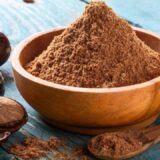How To Stay Healthy in Monsoons With Ayurveda
Monsoons are a pleasant mix of cozy consolation and culinary indulgence. Scorching chai, crispy pakodas, and steaming momos are irresistible temptations. Nonetheless, this season additionally brings an unwelcome surge in infections, casting a dampener on the temper. 
The important thing to having fun with the monsoon with out compromise lies in stability. Ayurveda, the traditional Indian knowledge of well being and well-being, presents a holistic method to navigating seasonal modifications by Ritucharya, or seasonal routine.
The Science Behind Ritucharya Ayurveda
Ritucharya in Ayurveda is rooted within the understanding of how environmental modifications have an effect on our well being all year long. It emphasizes seasonal routines tailor-made to every section (ritu) to maintain balance (dosha) throughout the physique and thoughts.
This historic follow aligns each day habits, eating regimen, and way of life with differences due to the season in temperature, humidity, and daylight.
For instance, in summer time (grishma ritu), cooling meals and behaviors are beneficial to counter heat-related imbalances. Every season’s routine goals to harmonize the physique’s pure rhythms, optimize digestion, immunity, and
Uttarayan (Northern Solstice): The Warming Section
The Uttarayan, or Northern Solstice, spans six months generally known as adan kala (absorptive section). Throughout this era, the solar’s ascent and prevailing winds steadily deplete the earth’s cooling properties, impacting dwelling beings. The adan kala encompasses three distinct seasons:
- Shishir (Late Winter): Two months of mild transition.
- Basant (Spring): Two months of renewal and development.
- Grishma (Summer season): Two months marked by intense warmth.
Dakshinayan (Southern Solstice): The Cooling Section
The Dakshinayan, or Southern Solstice, spans six months termed visarga kala (expulsive section). Throughout this era, the solar’s descent permits the moon to exert a cooling affect on the earth.
This section is characterised by reducing temperatures, cloud formation, rainfall, and chilly winds. The visarga kala includes:
- Varsha (Monsoon): Two months of precipitation and rejuvenation.
- Sharad (Autumn): Two months of harvest and stability.
- Hemant (Winter): Two months of chilly, dry climate.
High 3 Ayurvedic Well being Care Suggestions for Monsoons
Tip 1: Nourish Digestion (Agni)
As you talked about, digestion is essential for total well being, particularly through the monsoon. Here is the right way to strengthen it:
- Heat, cooked meals: Prioritize heat, freshly cooked meals to stimulate digestive hearth.
- Mild and simply digestible meals: Go for meals like rice, khichdi, and moong dal for his or her mild nature.
- Digestive spices: Incorporate ginger, cumin, coriander, and black pepper to help digestion.
Tip 2: Increase Immunity
A strong immune system is crucial for heading off monsoon maladies. Take into account these Ayurvedic approaches:
- Natural infusions: Sip on heat ginger-turmeric tea or tulsi (holy basil) tea to boost immunity.
- Ayurvedic herbs: Incorporate immune-boosting herbs like amla (Indian gooseberry) and ashwagandha into your eating regimen.
- Correct hygiene: Preserve private hygiene to forestall the unfold of infections.
Tip 3: Stability Vata Dosha
Vata aggravation is frequent through the monsoon. To counter this: Heat, oily, and candy meals: Embody meals like ghee, coconut oil, and candy potatoes to pacify Vata.
- Common therapeutic massage: Take pleasure in Ayurvedic massages like Abhyanga to appease Vata and calm down the physique.
Grounding practices: Incorporate yoga, meditation, and deep respiration to calm the thoughts and stability Vata.
The Herbs for Monsoon Wellness
Ayurveda presents a treasure trove of natural cures to bolster immunity and fight the challenges posed by the monsoon season. Let’s discover a number of the only ones:
1. Giloy (Tinospora cordifolia): Nature’s Immunity Booster
Famend for its immunomodulatory properties, Giloy is a strong ally within the combat towards infections. This versatile herb helps strengthen the physique’s pure defenses, making it a precious addition to your monsoon wellness routine.
2. Neem (Azadirachta indica): A Pure Antiseptic
Neem has been used for hundreds of years for its antibacterial and antifungal properties. Its potent antimicrobial actions make it a superb alternative for safeguarding the pores and skin from infections that thrive within the humid monsoon atmosphere.
3. Triphala: Holistic Digestive Assist
Triphala, a synergistic mix of three highly effective fruits – Amalaki, Bibhitaki, and Haritaki – presents complete digestive assist. It aids in detoxing, improves digestion, and promotes total intestine well being, important for sturdy immunity.
4. Ashwagandha: Adaptogen and Immunity Enhancer
Ashwagandha is an adaptogen herb that helps the physique handle stress, a standard perpetrator behind weakened immunity. By supporting the physique’s pure stress response, Ashwagandha not directly bolsters the immune system.
These outstanding herbs, when used appropriately, can considerably improve your skill to climate the monsoon season with resilience and vitality.
Food plan and Diet for the Monsoon Season
The monsoon season brings with it distinctive challenges to our well being and well-being. To keep up optimum well being throughout this time, it’s important to deal with a eating regimen that’s each nourishing and simple on the digestive system.
1. Eat Mild and Heat Meals:
The damp and humid circumstances of the monsoon can weaken digestion. To counteract this, it’s advisable to eat meals which are gentle, simply digestible, and heat in nature.
Soups, stews, and freshly cooked meals are glorious selections. Keep away from indulging in heavy, oily, or fried meals as they will overburden your digestive system and result in discomfort.
2. Use Spices:
Indian delicacies is famend for its fragrant spices, lots of which supply vital well being advantages. Incorporating spices like ginger, turmeric, cumin, and black pepper into your meals can help digestion, enhance immunity, and improve the general taste of your meals.
Ginger, for instance, is understood for its anti-inflammatory properties and skill to appease the digestive system. Turmeric, however, is wealthy in antioxidants and has anti-inflammatory results.
3. Seasonal Fruits and Greens:
Seasonal fruit and veggies usually are not solely full of important vitamins however are additionally extra more likely to be at their peak taste and freshness.
Incorporate apples, pears, and pomegranates into your eating regimen for his or her antioxidant content material. Greens comparable to bitter gourd, bottle gourd, and leafy greens provide quite a lot of nutritional vitamins, minerals, and fiber.
4. Keep away from Uncooked Meals:
The damp circumstances of the monsoon create a perfect atmosphere for micro organism to thrive. To scale back the chance of foodborne diseases, it’s best to restrict your consumption of uncooked meals.
Go for steamed or frivolously cooked greens as a substitute. This helps to make sure that the meals is protected to eat and simpler in your digestive system.
5. Drink Natural Teas:
Heat drinks might be significantly comforting through the monsoon. Natural teas made out of tulsi (holy basil), ginger, and mint provide a pleasant solution to keep hydrated whereas additionally supporting your well being.
Tulsi is understood for its immune-boosting properties, whereas ginger may also help soothe the digestive system. Mint provides a refreshing taste and may also help alleviate digestive discomfort.
By following these dietary pointers, you may successfully assist your physique’s wants through the monsoon season and improve your total well-being
Life-style and Routine for Monsoon Wellness
The monsoon season brings distinctive challenges to our total well-being. Adopting a conscious way of life is essential to staying wholesome throughout this time.
1. Keep Dry:
Some of the elementary steps to forestall monsoon-related diseases is to remain dry. Keep away from getting drenched within the rain at any time when doable. If you happen to do get moist, develop into dry garments promptly. Dampness can create a breeding floor for micro organism and fungi, main to varied infections.
2. Therapeutic massage Remedy:
Ayurveda extremely recommends Abhyanga, a self-massage approach utilizing heat oils like sesame or coconut. This follow is especially helpful through the monsoon. The oil nourishes the pores and skin, improves circulation, and helps stability the Vata dosha, which may change into aggravated throughout this season. Common therapeutic massage may also calm down the physique and thoughts, decreasing stress.
3. Common Train:
Whereas bodily exercise is crucial for total well being, the monsoon requires a modified method. Go for gentle workouts comparable to yoga, stretching, and brisk strolling. Keep away from intense exercises that may deplete your vitality ranges. Light train helps enhance circulation, enhance immunity, and scale back stress.
4. Enough Sleep:
Enough sleep is essential for a powerful immune system. Intention for 7-8 hours of high quality sleep every night time. Establishing an everyday sleep routine may also help regulate your physique’s inside clock and promote higher sleep. A well-rested physique is best geared up to combat off infections.
By incorporating these way of life modifications into your routine, you may considerably improve your skill to navigate the monsoon season with ease and vitality.
Hydration and Cleansing: Important for Monsoon Wellness
The monsoon season brings with it an elevated danger of waterborne ailments. Correct hydration and common detoxing are essential for sustaining optimum well being throughout this time.
1. Drink Heat Water:
Consuming warm water all through the day presents a number of advantages. It aids digestion by stimulating the digestive hearth, serving to to forestall indigestion and bloating. Heat water additionally assists in eradicating toxins from the physique, supporting total detoxing.
2. Keep away from Stagnant Water:
To guard your self from waterborne ailments, it’s crucial to drink solely purified or boiled water. Stagnant water can harbor dangerous micro organism, so it is best to keep away from it altogether.
3. Detox Practices:
Ayurveda locations nice emphasis on detoxing, or Panchakarma, to take care of total well-being. Common detoxing helps to eradicate accrued toxins from the physique, boosting immunity and selling higher well being.
Whereas skilled Panchakarma therapies are very best, there are additionally mild home-based detoxing practices that may be integrated into your routine.
By prioritizing hydration and detoxification, you may considerably improve your physique’s skill to fight the challenges posed by the monsoon season.
Nurturing Psychological Properly-being Throughout the Monsoon
The monsoon season can typically result in emotions of lethargy and temper swings. It is important to prioritize psychological wellness throughout this time.
1. Meditation:
Meditation is a strong software for decreasing stress, nervousness, and selling psychological readability. By dedicating even a brief period of time every day to meditation and deep respiration workouts, you may considerably enhance your total temper and resilience.
2. Aromatherapy:
Aromatherapy presents a pleasant solution to improve your psychological well-being. Important oils like eucalyptus, lavender, and sandalwood possess calming and uplifting properties. Incorporating these scents into your atmosphere can create a soothing ambiance and scale back emotions of stress and nervousness.
By combining meditation and aromatherapy, you may create a holistic method to psychological wellness, serving to you navigate the monsoon season with better ease and positivity.
By integrating these Ayurvedic practices into your each day routine, you may benefit from the monsoon season whereas staying wholesome and vibrant. Embrace the knowledge of Ayurveda to navigate the challenges of the wet season and improve your total well-being.

























